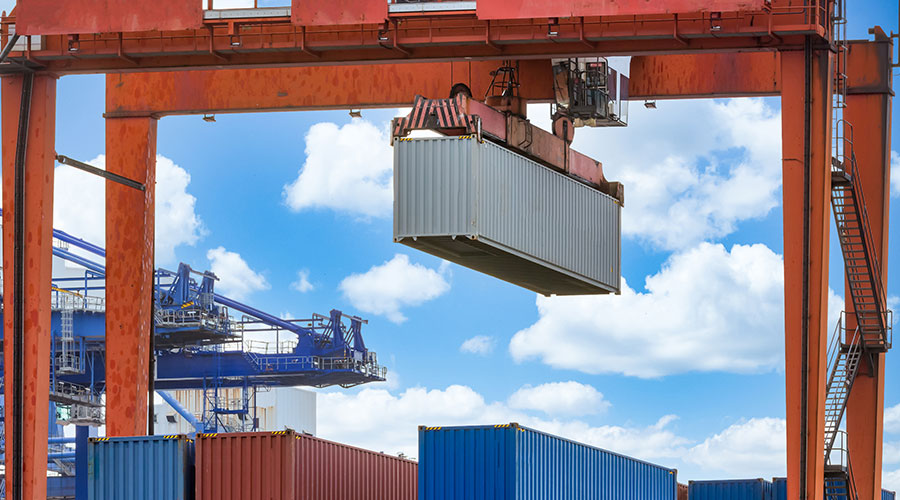

Malaysia plans to increase port charges by 30% and implement it in phases
Recently, there have been rumors that the Malaysian government intends to increase the port fee by 30%. Malaysian Transport Minister Liow Tiong Fook responded on April 22: The Malaysian government has not yet finalized the plan for raising port charges. The current proposed 30% increase will be implemented in three phases over three years to mitigate the impact on importers and exporters as well as the logistics industry.
Lu Zhaofu emphasized that the price increase proposal was not "sudden" but was made through extensive consultations by the Port Advisory Committee, with the participation of multiple stakeholders, including the Malaysian Manufacturers' Association, in the discussions.
Introduce a more transparent charging system
Lu Zhaofu pointed out that port charges in Malaysia have not been reviewed for many years. As early as 2015, the then minister had approved a phased increase plan of 30%, with a 15% increase each in that year and the originally planned 2018. However, the second phase was not implemented, which means that the last adjustment was ten years ago.
Lu Zhaofu said that the Ministry of Transportation plans to introduce a more structured and transparent fee review mechanism, which can be reviewed annually in the future instead of being re-reviewed after port operators submit applications.
We could consider adopting more moderate mechanisms, such as incorporating the consumer price Index (CPI) or the annual inflation rate into the calculation formula. If the annual inflation rate is 2%, then the adjustment range should also proceed gradually in accordance with this instead of being suddenly and significantly increased.
He believes that this arrangement is more conducive to balancing the country's economic development and the operational demands of ports. All parties are also more receptive to such gradual adjustments while keeping the port competitive.
Impose "industry service fees" on importers and exporters
Lu Zhaofu explained that port charges fall under "industry service fees", which are levied on importers and exporters in the logistics chain and will not be directly passed on to end consumers.
The charge for loading, unloading and handling a container trip will not have a direct impact on the consumer market.
He added that most of Malaysia's ports are privately operated, with investment and operation handled by chartered companies. Therefore, when the government formulates the charging mechanism, it must ensure the income of port operators and strike a balance between supporting the expansion of the country's logistics capacity.
Port operators need to invest a large amount of funds to expand terminals, add cranes and improve infrastructure. If the charging mechanism fails to reflect the actual operating costs, it will limit their investment capacity, which will inevitably affect the port service level and container throughput, and ultimately impact Malaysia's trade efficiency and competitiveness.
Earlier, the Federation of Malaysian Manufacturers called on the government to postpone the implementation of the 30% increase in port charges, especially in terms of container handling fees and storage fees.

Lu Zhaofu emphasized that the price increase proposal was not "sudden" but was made through extensive consultations by the Port Advisory Committee, with the participation of multiple stakeholders, including the Malaysian Manufacturers' Association, in the discussions.
Introduce a more transparent charging system
Lu Zhaofu pointed out that port charges in Malaysia have not been reviewed for many years. As early as 2015, the then minister had approved a phased increase plan of 30%, with a 15% increase each in that year and the originally planned 2018. However, the second phase was not implemented, which means that the last adjustment was ten years ago.
Lu Zhaofu said that the Ministry of Transportation plans to introduce a more structured and transparent fee review mechanism, which can be reviewed annually in the future instead of being re-reviewed after port operators submit applications.
We could consider adopting more moderate mechanisms, such as incorporating the consumer price Index (CPI) or the annual inflation rate into the calculation formula. If the annual inflation rate is 2%, then the adjustment range should also proceed gradually in accordance with this instead of being suddenly and significantly increased.
He believes that this arrangement is more conducive to balancing the country's economic development and the operational demands of ports. All parties are also more receptive to such gradual adjustments while keeping the port competitive.
Impose "industry service fees" on importers and exporters
Lu Zhaofu explained that port charges fall under "industry service fees", which are levied on importers and exporters in the logistics chain and will not be directly passed on to end consumers.
The charge for loading, unloading and handling a container trip will not have a direct impact on the consumer market.
He added that most of Malaysia's ports are privately operated, with investment and operation handled by chartered companies. Therefore, when the government formulates the charging mechanism, it must ensure the income of port operators and strike a balance between supporting the expansion of the country's logistics capacity.
Port operators need to invest a large amount of funds to expand terminals, add cranes and improve infrastructure. If the charging mechanism fails to reflect the actual operating costs, it will limit their investment capacity, which will inevitably affect the port service level and container throughput, and ultimately impact Malaysia's trade efficiency and competitiveness.
Earlier, the Federation of Malaysian Manufacturers called on the government to postpone the implementation of the 30% increase in port charges, especially in terms of container handling fees and storage fees.





